This article was co-authored by Chad Denman. Dr. Chad Denman is a Sleep Medicine Provider and is the Owner of Sleep Cycle Center in Austin, TX. With over ten years of experience and over 500 hours of Continuing Education in Sleep, he specializes in identifying and offering multiple treatment options to patients suffering from sleep issues. Additionally, he previously treated patients as a general dentist for over a decade! Dr. Denman completed his Doctor of Dental Surgery degree at Marquette University and earned an undergraduate degree in Exercise Physiology from Florida State University. He’s also a member of the American Academy of Sleep Medicine (AASM), the American Dental Association, and the Academy of General Dentistry. In addition, Dr. Chad is the Director of Doctor Success for the International Academy of Sleep (IAOS). There, he coaches other dentists on how they can become healthcare entrepreneurs and lectures nationwide on the importance of treating sleep apnea.
There are 18 references cited in this article, which can be found at the bottom of the page.
wikiHow marks an article as reader-approved once it receives enough positive feedback. In this case, several readers have written to tell us that this article was helpful to them, earning it our reader-approved status.
This article has been viewed 26,202 times.
Millions of people experience sleep apnea, so you don't have to feel like you're alone. There are a few types of sleep apnea, but the most common one is obstructive sleep apnea. This is when your airway closes periodically throughout the night, causing snoring, breathing trouble, constant waking up, and daytime sleepiness.[1] This can be a real drag on your daily life, so you should get it treated as soon as you can. The go-to treatment for sleep apnea is a CPAP machine, which delivers air to your lungs and keeps your airway open at night.[2] However, even if you use this machine, your doctor will probably suggest some lifestyle changes to fight your sleep apnea. These could make a big difference, so try them out for yourself to support your health.
Steps
Healthy Sleep Habits
Your sleeping habits could contribute to your sleep apnea, so a few changes at bedtime could make a big difference. Some of these are easier than others, since you can’t control what you do in your sleep, but do your best to stick with them. Try following these tips to sleep easier and avoid sleep apnea episodes during the night.
-
1Sleep on your side instead of on your back. Changing your sleeping position might be tough, but it could make a big difference. If you sleep on your back, it’s easier for your tongue to slide back and block your airway, which could trigger your sleep apnea. Try to make yourself sleep on your side instead.[3]
- You can try a few tricks to keep yourself from flipping onto your back while you’re asleep. One is placing a pillow along your back. Another is the “tennis ball trick” where you sew a tennis ball to the back of your shirt to prevent yourself from sleeping on your back.[4]
-
2Prop your head up while you sleep. Either raise the head of your bed 4–6 in (10–15 cm) or place a foam wedge under your upper body to elevate your head while you sleep.[5] This can prevent your tongue from tilting back and blocking your airway, which is a common trigger for sleep apnea.[6]Advertisement
-
3Use a humidifier in your bedroom. This could relieve some of your symptoms.[7] It's especially helpful if you use a CPAP machine, because these machines tend to dry out your lips, mouth, and nose. Keeping your airway moist could make you more comfortable.[8]
- If you use a CPAP machine, newer models usually come with a built-in humidifier.[9]
-
4Gargle with saltwater. This could soothe and shrink your tonsils, making your airway bigger.[10] With more space, your airway is harder to block and you can breathe easier at night.
-
5Stick to a regular sleeping schedule. Sleep apnea tends to improve when you get enough sleep, and sticking to a consistent schedule helps with that. Try to get up and go to bed around the same time each day, even on weekends, to maintain a regular schedule.[11]
-
6Avoid caffeine and heavy meals within 2 hours of bed. Both of these could make your sleep apnea worse. If you have a habit of eating late, try to stick with lighter meals and snacks.[12]
-
7Stop drinking alcohol before bed. Alcohol relaxes the muscles in your throat, which could block your airway and interfere with your breathing.[13] If you regularly drink, cut back and stop a few hours before bed.
-
8Don’t use sleeping pills to fall asleep. These drugs also relax your throat muscles and could make sleep apnea worse.[14]
- If you have trouble falling asleep, ask your doctor for healthy suggestions on sleeping better.
Lifestyle Changes
Controlling sleep apnea isn’t just about what you do at bedtime. You can also take some steps in your everyday life to relieve your symptoms. Following a generally healthy lifestyle can be a big help and might let you sleep easier. Try some of these tips to see if they work for you.
-
1Lose weight if you have to. This might be a big lifestyle change, but being overweight is one of the main causes for sleep apnea.[15] If you’re overweight or obese, then losing even a little bit of weight could make a big difference.[16] Talk to your doctor about the ideal weight loss program for you.
- While you should lose weight if you have to, crash or extreme dieting is dangerous. These diets are tough on your heart and there’s a high risk of gaining the weight back. Stick with a slow, steady weight loss program instead.[17]
-
2Exercise most days of the week. While exercise helps you lose weight, regular activity could relieve sleep apnea even without weight loss. Exercise also helps improve the length and quality of your sleep.[18] Stay active and try to get 30 minutes of exercise on most days of the week.[19]
- You don’t need to start an intense exercise program. Just a daily walk will work fine.
- Strength training and yoga could improve your breathing and strengthen your neck muscles, which might also help with sleep apnea.[20]
- Reduce your BMI to below 30 is the best at-home way to help reduce the severity of sleep apnea.
-
3Follow a healthy diet. This can help support your weight-loss goals and maintain a healthy heart.[21] Since sleep apnea can increase your blood pressure and put you at a higher risk for a heart attack, supporting your heart with a healthy diet is very important.[22] Design a diet rich in fresh produce and lean proteins but low in fat for the best results.[23]
- The Mediterranean diet, which is high in fish, fruits and vegetables, whole grains, and healthy fats, is especially healthy and provides a good guide for you.
- Cutting out mucus-producing foods could help as well.
-
4Open your nasal passages by rinsing your sinuses. Try using nasal spray or a neti pot.[24] This clears mucus out of your nasal passages, which could make it easier for you to breathe at night.
- You could also use nasal strips to open your airway while you sleep.
-
5Quit smoking. Smoking makes it harder to breathe and puts you at a higher risk for sleep apnea.[25] It’s best to quit as soon as possible to avoid health problems.
- Secondhand smoke can also cause health problems, so don’t let anyone smoke in your home either.
Strengthening Your Airway
A weak airway is one of the major causes of sleep apnea. The soft tissues around your throat could loosen and close up during the night. Taking some steps to strengthen your airway could prevent this and help you breathe easier.
-
1Tighten your mouth and throat muscles before going to bed. This could help keep your airway open at night. Try chewing gum or holding a pen between your teeth for 10 minutes before going to bed to see if this helps.[26]
-
2Press your tongue to the roof of your mouth. This easy exercise strengthens your neck and throat muscles. Press your tongue flat against the roof of your mouth and hold it there for 3 minutes each day.[27] If this starts getting easy for you, try pressing a little harder for a better workout.
- It might take a few weeks of consistent mouth and throat exercises to make a big difference, so stick with it.
-
3Pull your finger with your cheek. This also strengthens your upper throat muscles. Put your finger inside your mouth and gently pull one of your cheeks to the side. Then flex your cheek muscle to pull back on your finger. Repeat this 10 times, then switch sides.[28]
- You can repeat this exercise 3 times in a row for a good workout.
- Make sure you wash your hands before and after putting them in your mouth.
-
4Blow up a balloon to strengthen your airway. This might sound weird, but blowing up a balloon is an easy and fun way to exercise the muscles in your airway. Put your lips to the balloon, breathe in through your nose, and blow the balloon up without taking it away from your lips.[29]
- This is a simple exercise and you can repeat it several times throughout the day.
-
5Sing or play the didgeridoo. Both of these activities can strengthen your throat and the soft tissues in your airway. They can be fun activities to help you breathe easier at night.[30]
Medical Takeaways
Sleep apnea can be tough to deal with, but fortunately, there are treatments that can prevent it from interfering with your life. If you do have sleep apnea, you’ll probably need a CPAP machine to really improve your symptoms. However, your doctor will probably still recommend a few lifestyle changes that can make you feel better. These can be a big help, but remember that they aren’t a replacement for professional treatment, so you should talk to your doctor if you don’t notice any improvement. They can suggest further treatment options to help you feel much better.
Expert Q&A
-
QuestionWhat can you get over the counter for sleep apnea?
 Chad DenmanDr. Chad Denman is a Sleep Medicine Provider and is the Owner of Sleep Cycle Center in Austin, TX. With over ten years of experience and over 500 hours of Continuing Education in Sleep, he specializes in identifying and offering multiple treatment options to patients suffering from sleep issues. Additionally, he previously treated patients as a general dentist for over a decade! Dr. Denman completed his Doctor of Dental Surgery degree at Marquette University and earned an undergraduate degree in Exercise Physiology from Florida State University. He’s also a member of the American Academy of Sleep Medicine (AASM), the American Dental Association, and the Academy of General Dentistry. In addition, Dr. Chad is the Director of Doctor Success for the International Academy of Sleep (IAOS). There, he coaches other dentists on how they can become healthcare entrepreneurs and lectures nationwide on the importance of treating sleep apnea.
Chad DenmanDr. Chad Denman is a Sleep Medicine Provider and is the Owner of Sleep Cycle Center in Austin, TX. With over ten years of experience and over 500 hours of Continuing Education in Sleep, he specializes in identifying and offering multiple treatment options to patients suffering from sleep issues. Additionally, he previously treated patients as a general dentist for over a decade! Dr. Denman completed his Doctor of Dental Surgery degree at Marquette University and earned an undergraduate degree in Exercise Physiology from Florida State University. He’s also a member of the American Academy of Sleep Medicine (AASM), the American Dental Association, and the Academy of General Dentistry. In addition, Dr. Chad is the Director of Doctor Success for the International Academy of Sleep (IAOS). There, he coaches other dentists on how they can become healthcare entrepreneurs and lectures nationwide on the importance of treating sleep apnea.
Sleep Medicine Provider There are no over the counter cures for sleep apnea—there are only tricks to manage your airway. Oftentimes people recommend a special pillow or elevated mattress, which helps reduce snoring and keep you in a better body position, but neither treat the disease. Lowering your BMI so it's under 30 can help make your sleep apnea less severe, as well as reducing your alcohol intake (especially before bed).
There are no over the counter cures for sleep apnea—there are only tricks to manage your airway. Oftentimes people recommend a special pillow or elevated mattress, which helps reduce snoring and keep you in a better body position, but neither treat the disease. Lowering your BMI so it's under 30 can help make your sleep apnea less severe, as well as reducing your alcohol intake (especially before bed).
Expert Interview

Thanks for reading our article! If you'd like to learn more about sleep apnea, check out our in-depth interview with Chad Denman.
References
- ↑ https://www.helpguide.org/articles/sleep/sleep-apnea.htm
- ↑ https://my.clevelandclinic.org/health/diseases/8718-sleep-apnea
- ↑ https://www.helpguide.org/articles/sleep/sleep-apnea.htm
- ↑ https://www.helpguide.org/articles/sleep/snoring-tips-to-help-you-and-your-partner-sleep-better.htm
- ↑ https://www.health.harvard.edu/pain/is-your-pillow-hurting-your-health
- ↑ https://www.ncbi.nlm.nih.gov/pmc/articles/PMC5700252/
- ↑ https://www.lung.ca/sites/default/files/LungAssociation_SleepApneaHandbook_ENDec10.pdf
- ↑ https://www.sleepapnea.org/treat/cpap-therapy/what-you-should-know-about-cpap-humidification/the-importance-of-cpap-humidification/
- ↑ https://www.mountsinai.org/health-library/condition/sleep-apnea
- ↑ https://www.mountsinai.org/health-library/condition/sleep-apnea
- ↑ https://www.cdc.gov/bloodpressure/sleep.htm
- ↑ https://my.clevelandclinic.org/health/articles/11429-common-sleep-disorders
- ↑ https://health.clevelandclinic.org/why-you-should-limit-alcohol-before-bed-for-better-sleep/
- ↑ https://my.clevelandclinic.org/health/diseases/8718-sleep-apnea/management-and-treatment
- ↑ https://www.mayoclinic.org/diseases-conditions/sleep-apnea/symptoms-causes/syc-20377631
- ↑ https://www.mayoclinic.org/diseases-conditions/sleep-apnea/diagnosis-treatment/drc-20377636
- ↑ https://www.pennmedicine.org/updates/blogs/health-and-wellness/2018/june/crash-diets-and-weight-loss
- ↑ https://www.helpguide.org/articles/sleep/sleep-apnea.htm
- ↑ https://www.mayoclinic.org/diseases-conditions/sleep-apnea/diagnosis-treatment/drc-20377636
- ↑ https://www.helpguide.org/articles/sleep/sleep-apnea.htm
- ↑ https://www.nhlbi.nih.gov/health-topics/sleep-apnea
- ↑ https://www.heart.org/en/health-topics/consumer-healthcare/what-is-cardiovascular-disease/sleep-apnea-and-heart-disease-stroke
- ↑ https://www.ncbi.nlm.nih.gov/pmc/articles/PMC5559698/
- ↑ https://www.helpguide.org/articles/sleep/sleep-apnea.htm
- ↑ https://www.nhlbi.nih.gov/health-topics/sleep-apnea
- ↑ https://www.helpguide.org/articles/sleep/sleep-apnea.htm
- ↑ https://www.helpguide.org/articles/sleep/sleep-apnea.htm
- ↑ https://www.helpguide.org/articles/sleep/sleep-apnea.htm
- ↑ https://www.helpguide.org/articles/sleep/sleep-apnea.htm
- ↑ https://www.helpguide.org/articles/sleep/sleep-apnea.htm
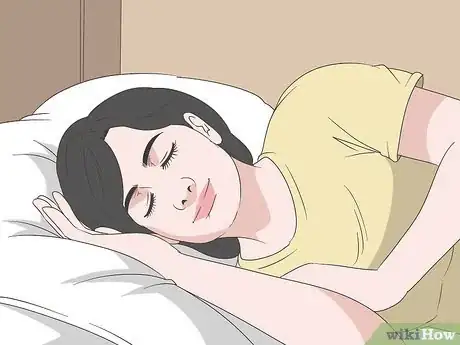
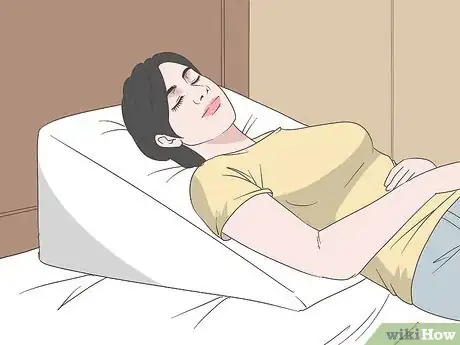
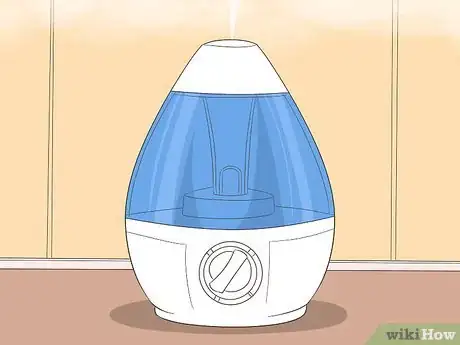
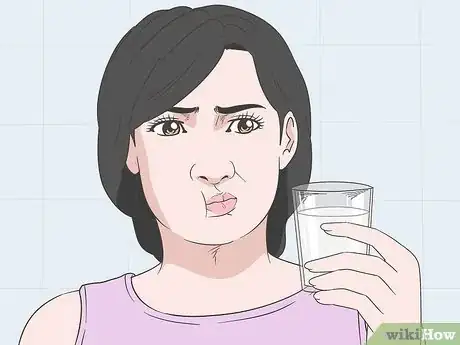
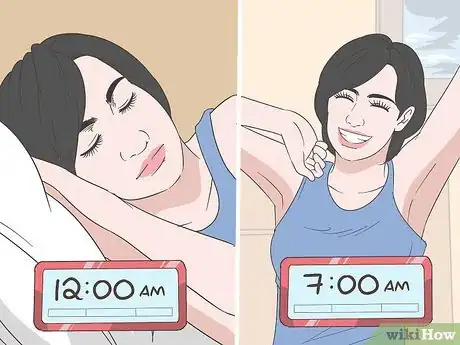
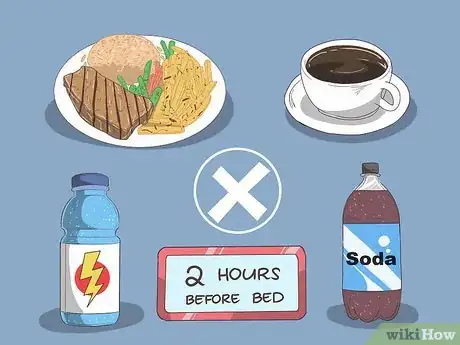
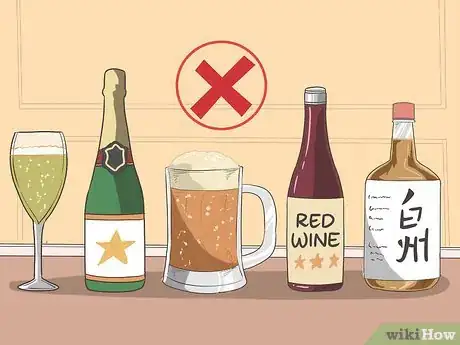
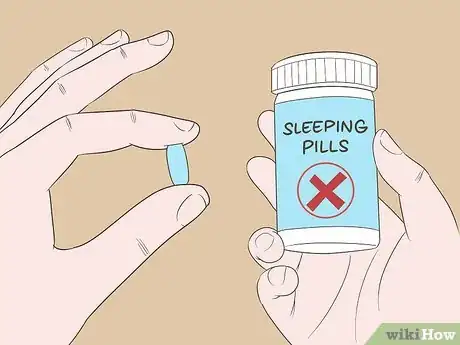
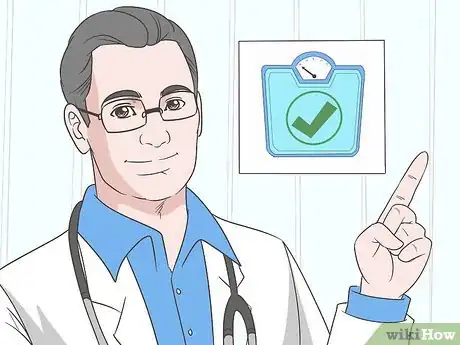
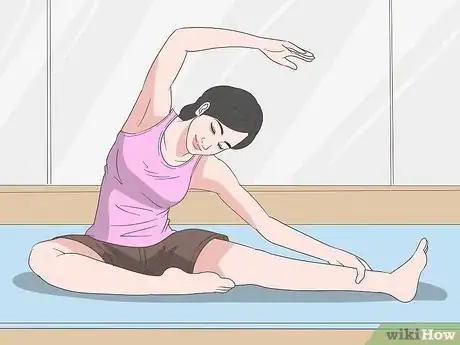

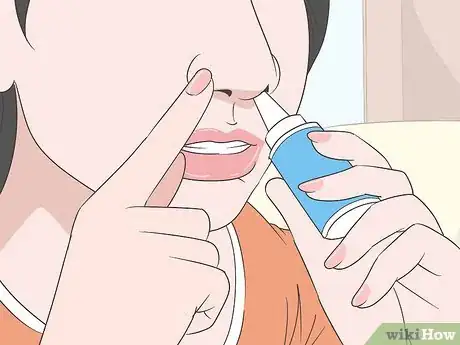
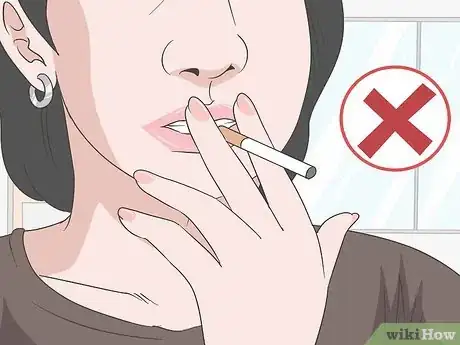
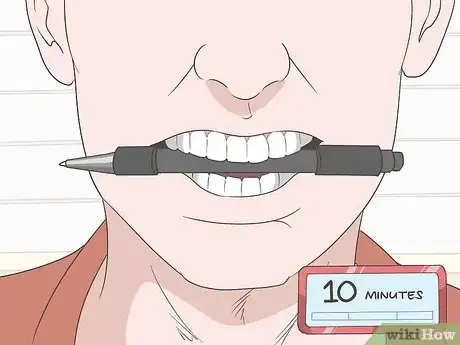
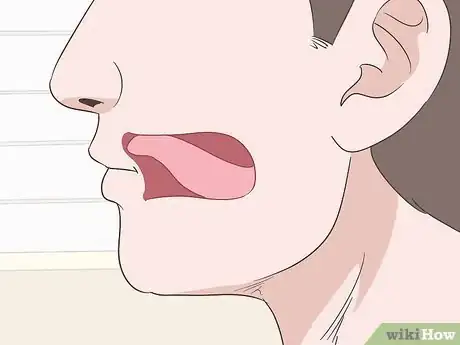
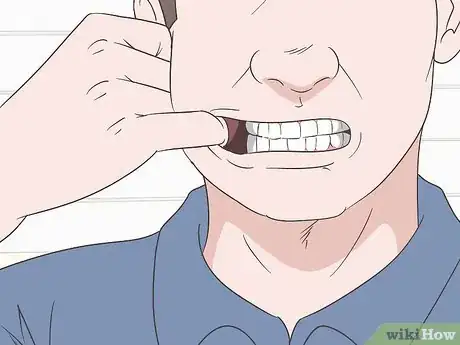
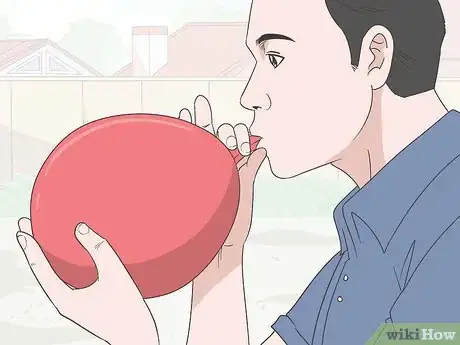
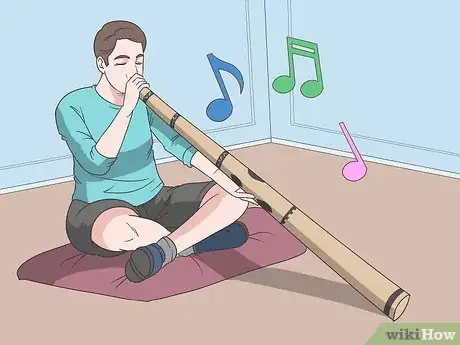

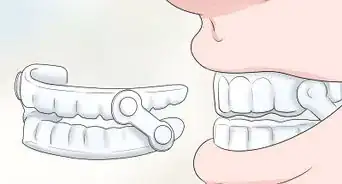

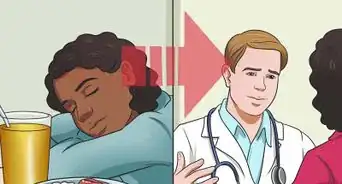
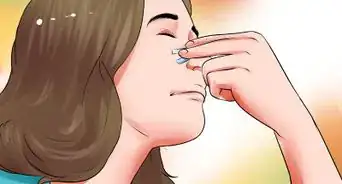




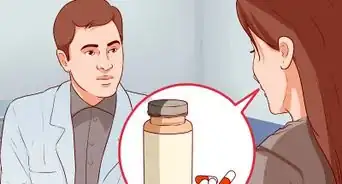
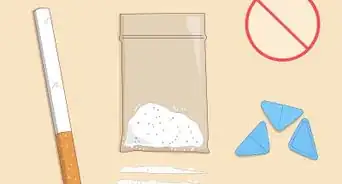
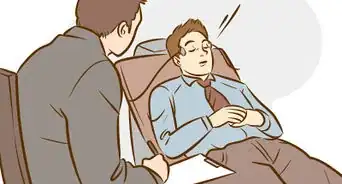
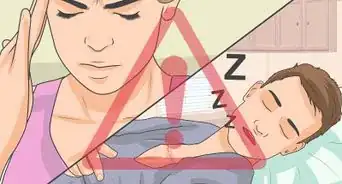
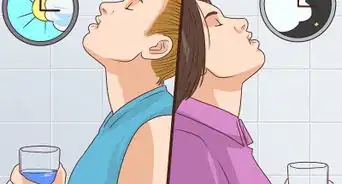












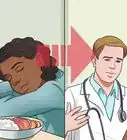



































Medical Disclaimer
The content of this article is not intended to be a substitute for professional medical advice, examination, diagnosis, or treatment. You should always contact your doctor or other qualified healthcare professional before starting, changing, or stopping any kind of health treatment.
Read More...